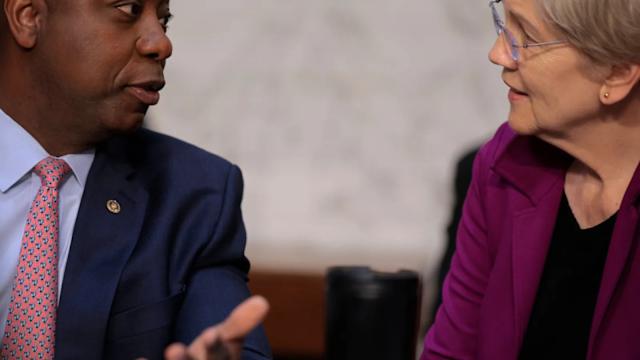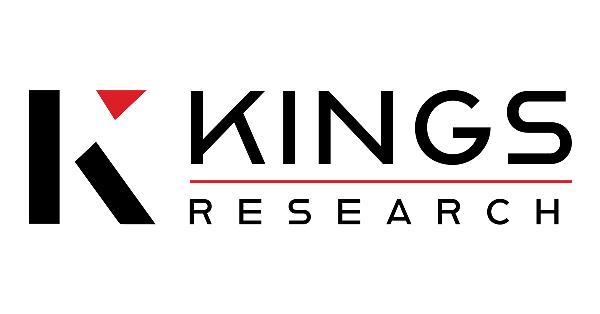
This story was originally published on Banking Dive. To receive daily news and insights, subscribe to our free daily Banking Dive newsletter.
Following the May release of the CLARITY Act, the House of Representative’s market structure bill to establish a cryptocurrency regulatory framework, the Senate Banking Committee met with industry leaders Wednesday to discuss how the Senate would craft its own framework.
Here are six takeaways from the hearing.
America is behind in establishing a crypto regulatory framework.
Countries like the U.K., Japan and Singapore are implementing bespoke digital asset frameworks, as the U.S. has fallen behind, Blockchain Association CEO Summer Mersinger said.
“[W]e must view establishing a federal regulatory framework as a national priority,” Mersinger said. “Digital assets and blockchain technology are revolutionizing financial services, supply chains, and digital identity. The country that leads on this policy will set global norms and unlock enormous economic and strategic benefits. The United States should be that leader, and this is our moment to lead.”
Existing laws tailored to traditional finance don’t quite fit crypto.
Mersinger noted that regulating the industry with the laws already in place has “created ambiguity,” thus limiting innovation and pushing changemakers to other jurisdictions with clearer crypto rules.
She also noted that traditional bank regulations are not fit for purpose for digital assets or the blockchain, as they’re meant for centralized intermediaries – “and that’s not what we’re dealing with here.”
“Without thoughtfully crafted rules for the road, we risk stifling innovation, leaving American consumers without proper safeguards and protections, and ceding leadership in a sector that will define the future of global finance and technology,” she said.
The great debate continues: security or commodity?
In his opening statement, committee Chair Sen. Tim Scott, R-SC, said that Senate Republicans recognize “the need to clarify and clearly define what is a commodity and what is a security and how digital assets can trade and be custodied in a way that fosters innovation while protecting investors.”
Mersinger asserted that regulators must recognize that digital assets are not securities.
“Code is not a security,” she said.
Timothy Massad, former chairman of the CFTC and former assistant secretary of the Treasury Department, implied that the discussion is broader than that.
Story Continues“This is a technology. It's not an asset class. It will be used in many ways, including in tokenizing securities,” Massad said.
“Whether something in digital form is a security, a commodity, or neither, cannot be easily defined by a paragraph or two in a statute,” he said. “It depends on what the token represents, whether there is an issuer, whether the transaction is one in which capital is being raised, and so forth.”
Additionally,the technology and its use cases are rapidly evolving, “so we should not lock in definitions that will prove obsolete soon,” he said.
Illicit activity and fraud are a concern, though to what extent varies by source.
Americans lost more than $9 billion to crypto scams last year, up 66% from the previous year, according to Federal Bureau of Investigation statistics cited by Sen. Elizabeth Warren, the committee’s ranking member.
Additionally, “terrorist organizations demonstrated increased sophistication in their use of cryptocurrency, turning to unhosted wallets, mixers, and privacy coins like Monero,” according to TRM Labs, which Warren also cited.
But “the data shows that more illegal activity still happens with cash than with crypto,” according to Scott, potentially referring to 2024 Treasury data that found “the use of virtual assets for money laundering remains far below that of fiat currency.”
“Criminals use cash-based money laundering strategies in significant part because cash offers anonymity. They commonly use U.S. currency due to its wide acceptance and stability,” the Treasury reported.
According to Chainalysis co-founder and CEO Jonathan Levin, blockchain enhances the ability to act quickly against illicit access. “Following the money on the blockchain is actually easier than in traditional finance.”
“Issuers of tokenized assets can actually take actions to easily freeze and seize assets,” he added. “In a recent pig butchering case, crypto exchange OKX and stablecoin issuer Tether froze and then seized $225 million of criminal proceeds in collaboration with U.S. Secret Service. The traceability and programmability of these assets is a key benefit in addressing illicit activity.”
Chainalysis works with banks, fintechs and public agencies to mitigate fraud, and found that less than 1% of crypto transactions are linked to illegal activity, putting it on par with traditional finance, Levin said.
Elected officials having close ties to crypto isn’t kosher, some people believe. But it’s not illegal either.
Warren called out President Donald Trump personally for his myriad dealings in the crypto industry, including issuing his own memecoin, having a portfolio of crypto investments, and (for his sons) owning a bitcoin mining company.
According to Chainalysis, Trump and his associates made more than $320 million on fees from the $TRUMP memecoin, Warren cited.
“If Congress passes a bill creating a new federal regulatory framework for the crypto market, what will happen to the crypto market? Is it likely to grow?” Warren asked Richard Painter, a former chief White House ethics lawyer.
“It will grow substantially,” he said.
“And what will that do to the value of President Trump's memecoin?” Warren asked.
“It will make him very rich, even richer than he already is,” Painter said.
Painter also took aim at lawmakers mulling crypto legislation after receiving hefty campaign donations from crypto firms. He’d recently tweeted that Sen. Kirsten Gillibrand, D-NY, who co-sponsored the stablecoin legislation that preceded the GENIUS Act, had received $217,000 in campaign donations from crypto firms.
The president having an outsized role in digital assets and Congress members receiving campaign contributions from the crypto industry and voting on the bill will lead to “a lack of confidence in our regulatory system,” Painter said.
What if lawmakers don’t get the market structure framework right?
Sen. Lisa Blunt Rochester, D-DE, asked Painter about the risks of Congress moving too quickly on crypto legislation without a clear understanding of market consequences.
“The risk is that we repeat the experience of regulating the banks in the 1920s and the depression that followed, 10 years of depression,” Painter said. “The risk is that we repeat what happened in 2008 when campaign contributions poured into Congress from the securities swap industry, elsewhere in the financial services industry, and we had decades of de-regulation, the economy collapsed, millions of American families losing their homes, people unemployed.”
“We do not want another economic collapse caused by de-regulation of the financial services sector,” he said.
Recommended Reading
-
FDIC vice chair wants regulators to hurry up on addressing tokenization






![Lobster Market Growth: Key Factors Driving Expansion to USD [9.6 Billion] by {2029}](https://noticiasdecostarica.com/zb_users/upload/2025/07/20250714121902175246674235065.png)






